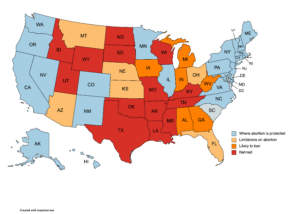As founders, you hear all the time that company culture needs to be a large focus of the CEO. Others go so far as to say the culture follows the executives. So what happens when HR alerts you to a situation where an employee experiences physical abuse? A lot of questions follow that. Most commonly:
- Who was the abuser?
- Where did it occur?
- What are your legal obligations?
Those questions tend to cover the basics when an employer is legally obligated to act.
But beyond those basics lie the real question. Do your employees feel safe?
Most CEO’s would assume “yes,” but that might not be the case. Emotional toxicity doesn’t always reach the executives because it’s hard to prove, and there’s a stigma around being the one to report it. Physical abuse is much easier to prove. But if it didn’t happen at the workplace, a company may not be legally responsible (depending on the situation).
And that’s where the hard decisions come into play. You may be tempted to “contain the situation” instead of take swift action. In the short term, you might be ok. But word gets out. And it travels fast.
And your employees stop feeling safe. They stop trusting you. Your culture is gone.
Then you start seeing employee churn. People leave. New people come in, get word of what happened, and leave. Productivity stops, valuation goes down, and the company as a whole suffers.
Do your employees feel safe?
This bears repeating. And not just physically.
Psychologically do they feel safe? Can they make mistakes without worrying about consequences?
Emotionally do they feel safe? Are they belittled or made to feel like their work doesn’t matter? Because happiness affects productivity.
Concluding thoughts
A lawyer once told me there was a huge difference between what is legal, and what is ethical. That stuck with me.
As leaders and CEO’s of budding startups, are we taking full responsibility for the trust our employees have put in us? Not just to make them money. But to protect them. To do what is ethical, and often hard, even though we may not legally need to?
Our employees spend 62% of their lives with us and our companies. Are we showing them the same dedication they show us? Are you protecting your people?








